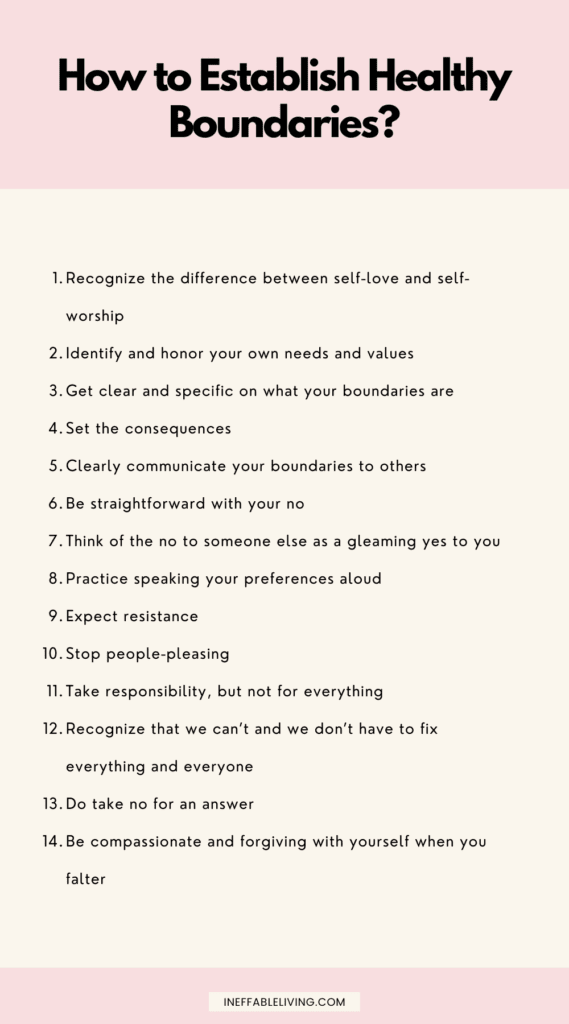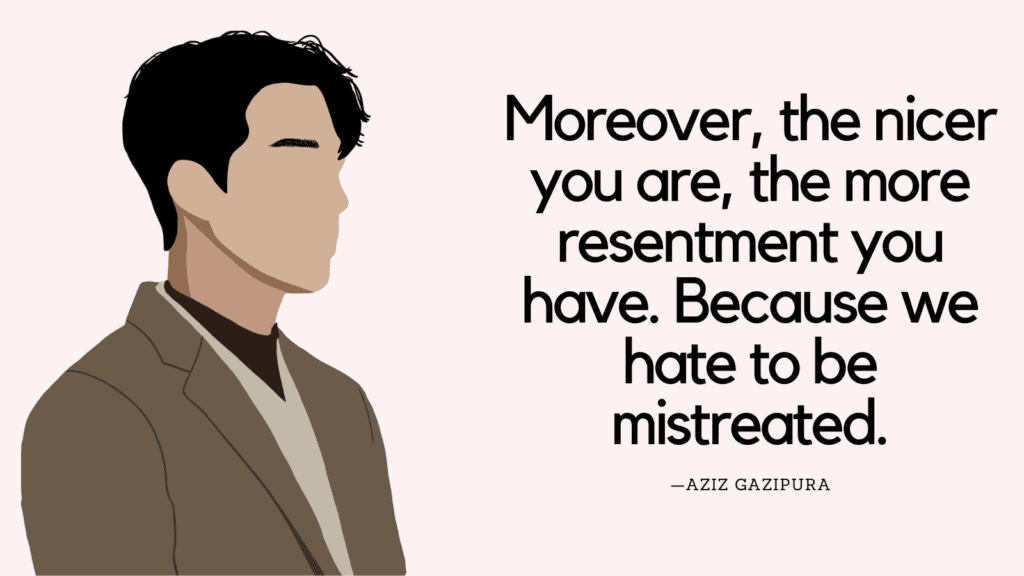This post contains some of the best quotes about being too nice and taken advantage of.
Quotes About Being Too Nice And Taken Advantage Of
1. “One of the most common ways Nice Guys use covert contracts to try to meet their needs is through caretaking. Nice Guys believe their caretaking is fundamentally loving and is one of the things that makes them good people. In reality, caretaking has nothing to do with being loving or good. Caretaking is an immature and indirect attempt to try to get one’s needs met.”— Robert A. Glover
2. “When Nice Guys try to hide their humanity from others, they reinforce their core belief that they are bad and unlovable. Changing this core belief requires that they bring their humanity out into the open, release their toxic shame, and receive more accurate messages than the ones internalized in childhood.”— Robert A. Glover
3. “In some households, parents directly tell their children not to be angry, or to “be nice.” They may criticize them for feeling angry or punish them for acting angry.”— Aziz Gazipura
Related: Healthy Boundaries Quiz (+Free Pdf Worksheets)
4. “For Nice Guys, trying to become needless and wantless was a primary way of trying to cope with their childhood abandonment experiences. Since it was when they had the most needs that they felt the most abandoned, they believed it was their needs that drove people away.”— Robert A. Glover
5. “In addition to using ineffective strategies to get their needs met, Nice Guys are terrible receivers. Since getting their needs met contradicts their childhood paradigms, Nice Guys are extremely uncomfortable when they actually do get what they want. Though most Nice Guys have a difficult time grasping this concept, they are terrified of getting what they really want and will go to extreme measures to make sure they don’t.”— Robert A. Glover
6. “Nice Guys have an uncanny knack of picking partners who, because of childhood sexual abuse or other negative experiences with sex, tend to have a difficult time being sexually expressive. When these partners do make themselves available to be sexual, it is not uncommon for Nice Guys to do something that further ensures that they don’t get their needs met.”— Robert A. Glover
7. “As a result of the conditioning they received in their family and society, Nice Guys believe if they are “good,” then they should be loved, get their needs met, and have a problem-free life. In reality, the primary paradigm of the Nice Guy Syndrome is nothing more than a big covert contract with life.”— Robert A. Glover
Related: What Do Boundaries Sound Like? + 35 Boundaries Examples
8. “The whole thing feels terrible, but what are you going to do? Start saying no? Become some kind of selfish asshole who doesn’t care about others? No, that won’t work. Everyone would hate you and you’d lose your family, friends, and job. The only thing to do is to try harder, be nicer, and put a smile on your face.”—Aziz Gazipura
9. “Nice programming runs deep, and it’s hard to see the other side until you really start making progress and feeling the difference. One thing that can help you make that leap is to see the high cost of being nice. The truth is striving to be nice actually takes an incredible toll on your mind, emotions, relationships, and even your physical health. Unfortunately, most people don’t attribute any of these challenges to their inner demands for niceness, so they seek solutions for the symptoms without resolving the underlying source.”—Aziz Gazipura
10. “Nice Guys caretake for a number of reasons, none of them having anything to do with love. For them, even the most innocuous and subtle act often has some string attached. Nice Guys give in the ways they would like others to give to them. They give gifts, affection, back rubs, sex, surprises. They will encourage their partner to take a day off, buy a new outfit, go to the doctor, take a trip, quit a job, go back to school — yet would not give themselves permission to do any of the same things.”— Robert A. Glover

11. “Most Nice Guys are astonished when I tell them that it is healthy to have needs and that mature people make getting their needs met a priority. Sometimes I have to repeat this truth many times in order for it to sink in. For Nice Guys, having needs means being “needy,” and needy represents a one-way ticket to abandonment.”— Robert A. Glover
Related: Nice Guy Syndrome Test (+Best 19 Practical Strategies To Overcome The Nice Guy Syndrome)
12. “Trying hard to be a nice person means attempting to please others, feeling bad for not living up to your rules or for hurting others’ feelings, and avoiding anger and conflict. This creates anxiety. You are worried that others will not like you, about being a “bad person” and losing relationships because of it, and about getting upset or other people being upset. Life is full of fear.”—Aziz Gazipura
13. “Moreover, the nicer you are, the more resentment you have. Because we hate to be mistreated.”—Aziz Gazipura
14. “What? How on earth could being too nice cause stomach pain, irritable bowel, TMJ, back pain, wrist pain, or plantar fasciitis? Those are physical conditions, aren’t they? Well, yes, and no. They are definitely physical conditions, and are extremely painful. There’s no denying that. However, the part that is misunderstood by many people is that they are not caused by a structural problem in your body, but an emotional problem.”—Aziz Gazipura
15. “When we were trained to be nice growing up, we learned that certain feelings are acceptable, such as happiness, gladness, gratitude and excitement. Other feelings, like sadness and fear are less acceptable and should be kept to a minimum. Other feelings, like anger and aggression are in their own category and never OK. Especially anger at family, loved ones, people who’ve done things for us, and so on.”—Aziz Gazipura
Related: People Pleaser Quiz (+Top 21 Proven Ways to Stop People Pleasing)
16. “Nice Guys have believed a myth that promises them that if they give up themselves and put others first, they will be loved and get their needs met. There is only one way to change this illogical, nonproductive Nice Guy paradigm — putting themselves first.”— Robert A. Glover
17. “Another specter than haunts you when you’re nice is a feeling of powerlessness. This makes sense, because you are. At least as long as you’re living by the self-imposed rules of the nice person.”—Aziz Gazipura
18. “Making the decision to put the self first is the hardest part. Actually doing it is relatively easy. When the Nice Guy puts himself first there is only one voice to consider — his own. Decisions are now made by one individual, rather than by a committee. He no longer has to mind read, predict, or try to please multiple voices with conflicting agendas. When putting himself first all the information he needs to make a decision is within him: “Is this what I want? Yes. Then that’s what I’ll do”— Robert A. Glover
19. “Living by these rules, you must put others first, be extremely accommodating, only do what others want, only express the parts of you that others will like, avoid speaking your mind, and be quiet and polite. These rules are robbing you of your power and force.”—Aziz Gazipura
20. “Interestingly enough, when Nice Guys take responsibility for their own needs and make them a priority, those around them benefit too. Gone are the covert contracts, the guessing games, the anger outbursts, and passive-aggressive behavior. Gone are the manipulation, the controlling behavior, and the resentment. I learned this lesson first-hand a few years back.”— Robert A. Glover
21. “In order to get their needs met, recovering Nice Guys must do something radically different from what they have done previously. For Nice Guys, putting the self first is not just a suggestion to try on for size. It is essential not only for getting needs met, but also for reclaiming personal power, feeling fully alive, and experiencing love and intimacy.”— Robert A. Glover
Related: Take The Echoist Quiz (The Opposite Of A Narcissist)

How to Stop People-Pleasing?
People-pleasing is a common behavior that can stem from various underlying causes, such as low self-esteem, fear of rejection, or the desire for approval.
While it may temporarily satisfy others, people-pleasing often leads to stress, burnout, and a neglect of one’s own needs and boundaries.
Here are some suggestions to help you stop people-pleasing:
1. Recognize your patterns
Start by becoming aware of when and why you engage in people-pleasing behaviors.
Notice the situations, emotions, and thoughts that trigger this response.
Understanding your patterns will help you gain insight into the underlying reasons behind your need to please others.
2. Explore your beliefs and values
Reflect on your core beliefs and values.
Are your actions aligned with your true self, or are they driven by a fear of disapproval or rejection?
Clarifying your own values and priorities can provide a solid foundation for making decisions based on what feels right to you rather than solely seeking external validation.
3. Practice assertiveness
Develop assertiveness skills, which involve expressing your thoughts, needs, and boundaries in a respectful and direct manner.
Learning to say “no” when necessary and setting healthy boundaries can be empowering.
Remember, it’s okay to prioritize yourself and your well-being.
Related: Top 5 Tips On How To Be Assertive Without Being Rude
4. Challenge negative self-talk
People-pleasers often engage in self-critical thoughts and have a fear of disappointing others.
Challenge these negative beliefs and replace them with more realistic and self-affirming thoughts.
Recognize that your worth is not solely determined by meeting others’ expectations.
Related: Negative Core Beliefs List (& 8 Tips On How To Challenge Them)
5. Practice self-care
Prioritize self-care activities that nurture your physical, emotional, and mental well-being.
Engage in activities that you genuinely enjoy and that help you recharge.
Taking care of yourself builds resilience and empowers you to make choices that align with your needs.
Conclusion
Breaking the habit of people-pleasing takes time and practice.
Be patient and compassionate with yourself as you work towards reclaiming your autonomy and prioritizing your own well-being.



